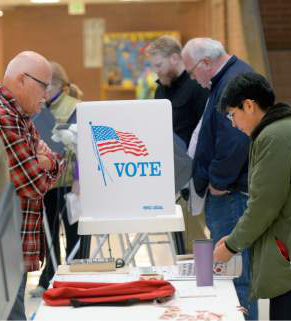This is an archived article that was published on sltrib.com in 2016, and information in the article may be outdated. It is provided only for personal research purposes and may not be reprinted.
Officials are asking legislators how they want to hold future elections — by mail, by paper ballot or electronically — because that may make a difference of millions of dollars in replacing old voting machines.
Mark Thomas, state elections director for Lt. Gov. Spencer Cox, said a committee is now studying options for replacing machines statewide that are nearing the end of their lifespans. A recommendation is expected early next year.
But Thomas asked the Government Operations Interim Committee for some guidance on Wednesday.
If the state helps to buy new electronic machines to conduct traditional, in-person elections with new machines at hundreds of polling places statewide, it would cost an estimated $10 million to $15 million, he said.
But if the state moves to vote mostly by mail, the cost would be much less — $2.2 million to $3.2 million — for fewer high-speed optical scanners to count paper ballots.
Thomas noted that 20 of Utah's 29 counties are voting mostly by mail in next month's primary elections.
Some lawmakers said the state should even consider saving all that money and go to an even cheaper, low-tech method of hand counting paper ballots.
Sen. Lyle Hillyard, R-Logan, said he's heard suggestions that volunteers in each precinct — chosen by opposing parties — could count votes throughout the day after every 100 ballots or so are cast. He said most votes would be counted before polls close, allowing for quick reporting with paper trails to resolve any disputes.
"I'm not overly enthused about spending a lot of money for computers for voting because I think we can do it other ways," he said.
Legislators asked Thomas if the state is considering online voting. He said he believes that will happen someday, "but we're not there yet" and cannot guarantee security through such a system.
The state is using a form of online voting now for members of the military and people living overseas, but that amounts to them emailing a ballot, which he said it would not work on a larger scale.



